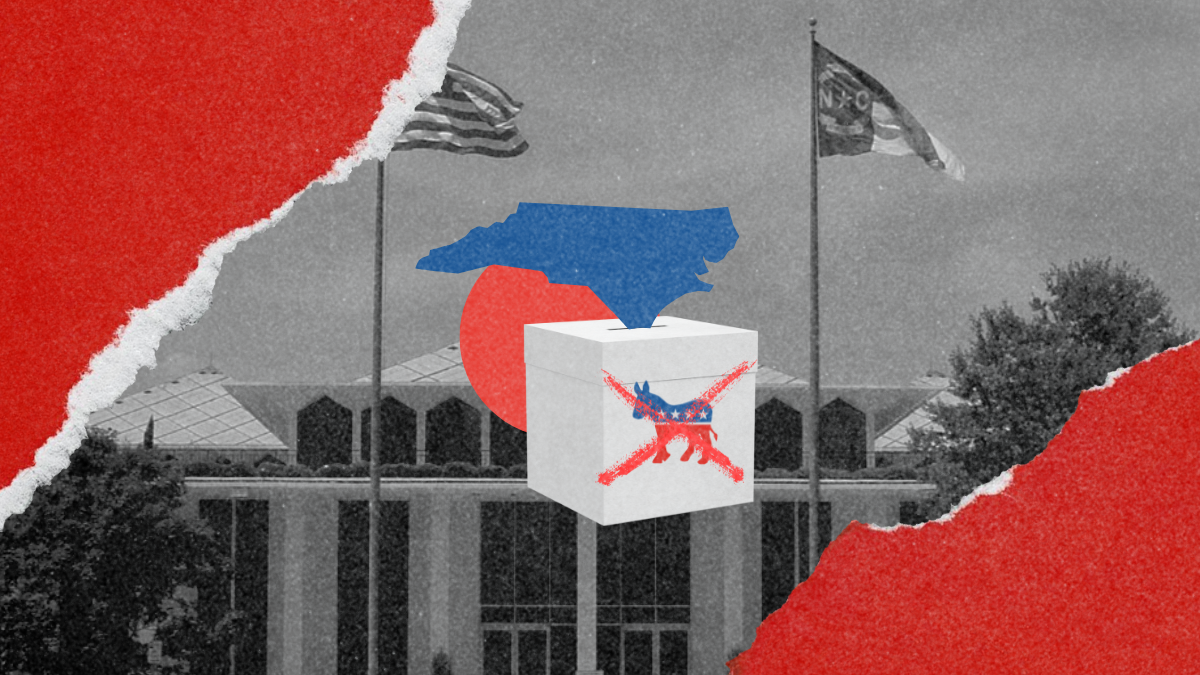Source: Editorial Board
Despite the severe headwinds that led to a second Trump presidency, Democrats and their allies in North Carolina had sweeping success down-ballot, in a sound rejection of state-level MAGA candidates.
Democratic Governor-elect Josh Stein, who ran a proudly progressive campaign, got more votes than any other candidate statewide, including Donald Trump. This race was not a foregone conclusion – High Point University polling showed Republican Mark Robinson leading by 5 points this May – and is a huge victory for Democrats looking to establish North Carolina as a southern safe haven during the second Trump presidency.
Additionally, Democrats won races for Lieutenant Governor, Attorney General, State Superintendent of Public Instruction, and Secretary of State – notching two Democratic gains and two holds in these critical Council of State positions.
In this election’s closest contest, Democrats also retained Justice Allison Riggs on the state Supreme Court. Riggs defeated a fetal personhood judge, and her win sets up Democrats to take back control of the state Supreme Court by 2030.
Finally, despite North Carolina being an evenly divided state politically, extreme gerrymandering has allowed Republicans to obtain a supermajority in the legislature in recent years. In this election, thanks to several victories in key legislative races, Democrats broke the Republican supermajority. This returns the power of the veto to Governor-elect Stein, a critical tool in keeping regressive legislation at bay.
Unfortunately, instead of respecting the will of North Carolinians, who overwhelmingly rejected state-level MAGA candidates, Republicans have decided to use the last few weeks of their supermajority to make an audacious power grab.
Not only did the NC GOP secretly write and quickly pass SB 382, a bill that strips power from the incoming Democratic governor and attorney general and drastically changes how elections are administered, but they did so under the guise of passing relief for victims of September’s deadly Hurricane Helene, a move so stunningly shameless it seems more apt for a comic book villain.
While the bill ostensibly allocates $227 million in hurricane relief from the state’s reserves, the money has been ordered to remain unspent for now. Rep. Eric Ager (D-Buncombe) slammed the bill saying, “It moves some money around here in Raleigh, but it doesn’t get it into the hands of the people that need it. Instead, this bill is focused on a whole host of political priorities.”
The bill contains a multitude of provisions that will change how elections are administered in North Carolina, including transferring the power of State Board of Elections appointments and oversight from the Democratic governor to the newly elected Republican State Auditor. It limits the amount of time groups have to fix issues with provisional and mail-in ballots (a key issue in the tight State Supreme Court race that Democrat Allison Riggs narrowly won) and it would target and remove two judges who had previously ruled against such election law shenanigans from the General Assembly.
While Gov. Roy Cooper promptly vetoed SB 382, calling the legislation “a sham,” Senate Republicans voted to override the veto on Monday. The bill now goes to the House.





